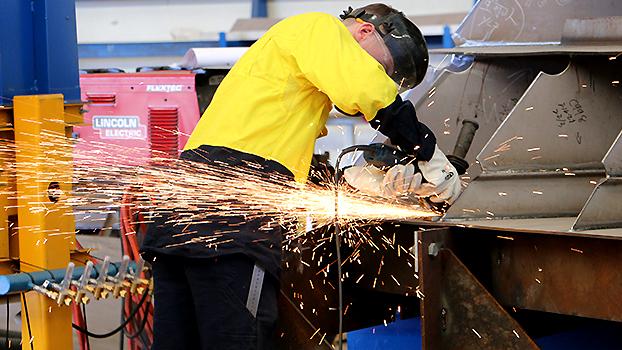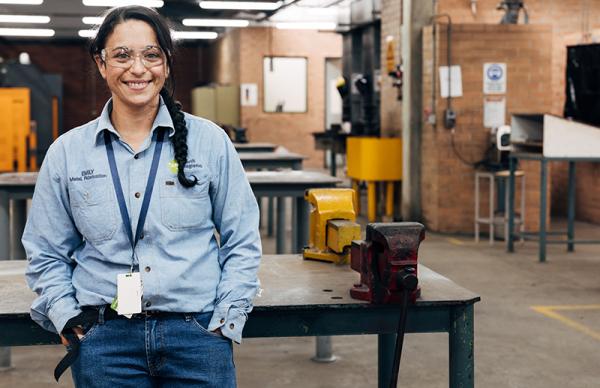
Metal fabricator
Metal fabricators select and prepare metal stock for fabrication to make or repair metal structures such as boilers and pressure vessels. Metal fabricators study blueprints, drawing and specifications to determine job requirements. They shape and bend metal sections and pipes using hand and machine tools. They join metal sections using various welding techniques, as well as cut metal sections by using flame cutting torches and metal cutting machines.
Working conditions
Metal fabricators work mostly in engineering workshops, but may also work in railway or shipyards, or other industrial areas like factories, power stations or even mining operations. Conditions are often dirty, hot, dusty and loud. Metal fabricators are often required to work in cramped areas, and because they may be required to work above, alongside or below a particular structure their work may be awkward. They generally work regular business hours, but depending on their workload or nature of particular projects they may need to work long or odd hours.
Tools and technologies
Metal Fabricators work with hand tools, flame cutting torches or a guillotine to cut metal and grinders, hammers and cutting torches to remove irregular edges. These workers also use machining tools such as vices, rolling machines, and hydraulic presses to bend and shape components that are to be assembled by welding, bolting or riveting. They may also use industrial measuring equipment, and are usually required to use personal protective equipment (PPE) such as overalls, steel-capped boots, safety glasses and welding masks. Some metal fabricators may also use computers and computer-aided design (CAD) software.
Education and training
To become a metal fabricator, you usually need to undertake an apprenticeship in engineering tradesperson fabrication.
The engineering tradesperson fabrication (first class welder), the engineering tradesperson fabrication (heavy/welder) and the engineering tradesperson fabrication (sheetmetal) apprenticeships usually take 42 to 48 months to complete and are available as school-based apprenticeships.

Free support and assistance
Your local jobs and Skills Centre can provide free information, support and assistance to help you decide on the best training options to meet your goals.
Disclaimer
The information presented on the occupation profiles within this website is offered as a guide only.


